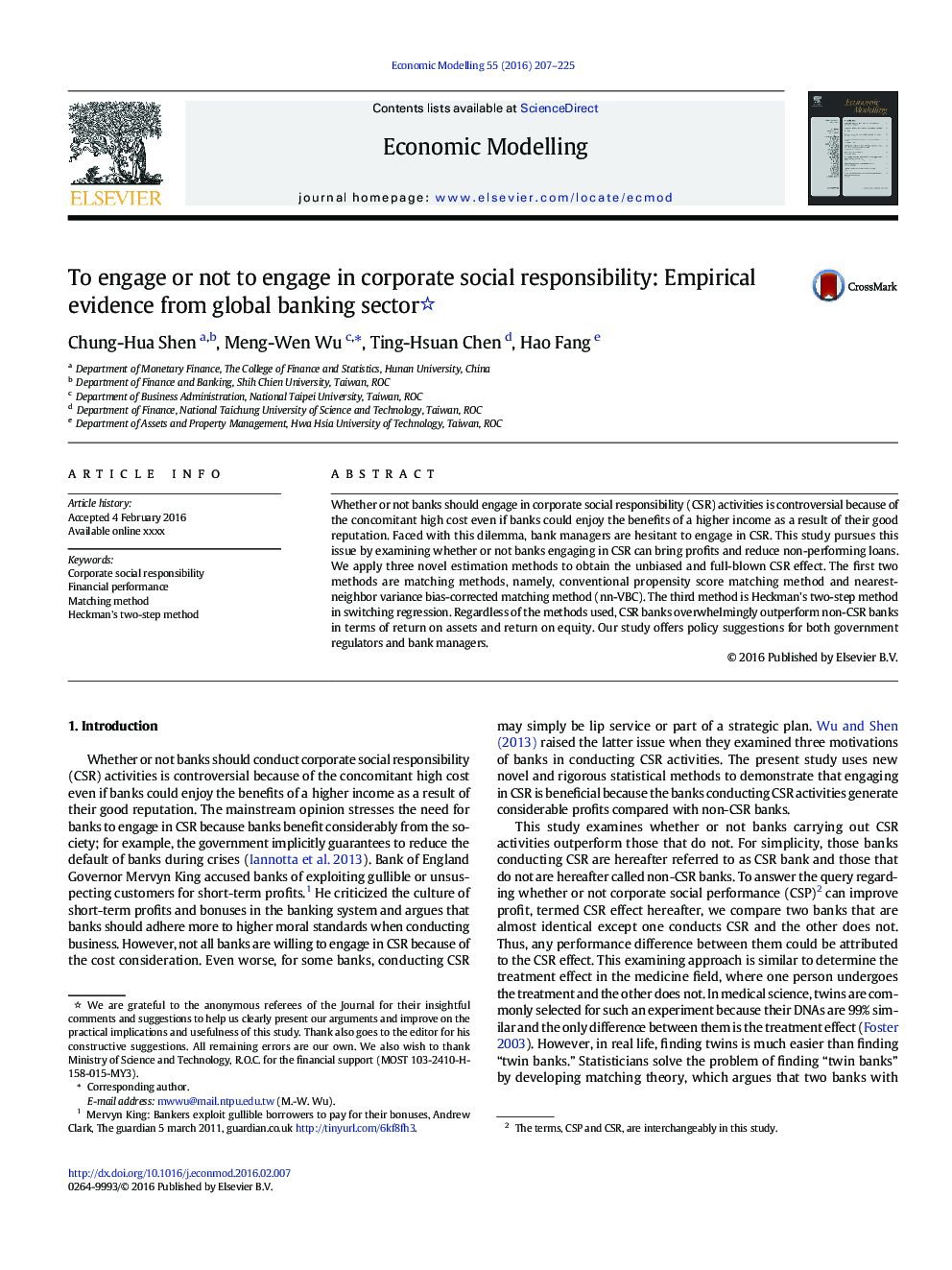| Article ID | Journal | Published Year | Pages | File Type |
|---|---|---|---|---|
| 5053565 | Economic Modelling | 2016 | 19 Pages |
Abstract
Whether or not banks should engage in corporate social responsibility (CSR) activities is controversial because of the concomitant high cost even if banks could enjoy the benefits of a higher income as a result of their good reputation. Faced with this dilemma, bank managers are hesitant to engage in CSR. This study pursues this issue by examining whether or not banks engaging in CSR can bring profits and reduce non-performing loans. We apply three novel estimation methods to obtain the unbiased and full-blown CSR effect. The first two methods are matching methods, namely, conventional propensity score matching method and nearest-neighbor variance bias-corrected matching method (nn-VBC). The third method is Heckman's two-step method in switching regression. Regardless of the methods used, CSR banks overwhelmingly outperform non-CSR banks in terms of return on assets and return on equity. Our study offers policy suggestions for both government regulators and bank managers.
Related Topics
Social Sciences and Humanities
Economics, Econometrics and Finance
Economics and Econometrics
Authors
Chung-Hua Shen, Meng-Wen Wu, Ting-Hsuan Chen, Hao Fang,
